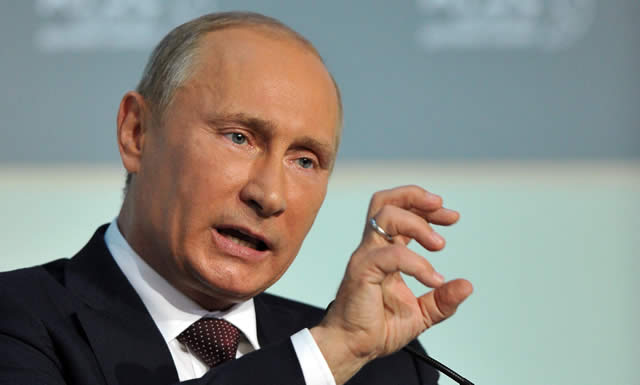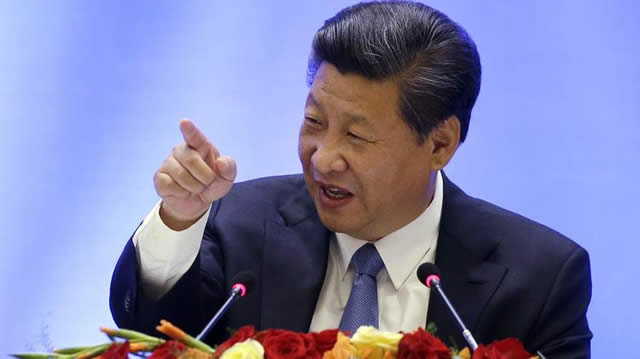No messiahs in a revolution
Reason Wafawarova On Thursday
The dialogical nature of any revolution lies in its collectiveness, in the cooperation of oppressed people towards the total transformation of the oppressive environment around them. Contrary to the misguided view that the revolution of land reclamation has been concluded in Zimbabwe, and that we are now in another struggle for the indigenisation of the economy, the reality of the matter is that what has happened with land redistribution in the last 15 years is nowhere near half the definition of a revolution, not until the land we reclaimed from colonialists transforms our economy to give to our nation a sense of livelihood and prosperity.
The grandstanding gimmicks of some ministers appointed to preside over revolutionary causes must never be mistaken for messianic heroism, especially on the part of the appointees themselves, and not least from the viewpoint of the masses.
There cannot not be revolutionary success to an indigenisation policy that treats our young people as dominated subjects of a sophisticated elitist leadership, and neither will there ever be a successful land revolution in a system where the masses are treated as dominated objects reliant on the benevolence of those wielding political power. No revolution will ever succeed on the basis of handouts to the suffering masses.
Wherever oppression of the masses is real, as is the subjugation of the post-colonial African today, the oppressed will by definition of their predicament fulfil their vocation as the only people responsible for their own liberation.
This is how we fought against a sophisticated colonial hegemony and defeated it. Every member of our oppressed masses fulfilled their vocation in making the liberation war a success, and it was the masses that instilled fear into Ian Smith’s war machinery, not exactly the AK47 rifles, the bazookas, the light machine guns, and the hand grenades that our armed freedom fighters carried with admirably unabated resolve and conviction.
I am by no means belittling or demeaning the role of revolutionary leadership, nor that of our war veterans. I am merely saying for all its important, fundamental and indispensable role, revolutionary leadership does not own the people, does not think on behalf of the people, and does not hold messianic entitlements over anyone. No politician has any right to unilaterally steer our people towards their salvation. Not even a political party is entitled to such a right.
The salvation of an entire nation can never be reduced to a mere gift from a bunch of politicians, regardless of whatever clout, credentials and accolades attributable to them. The liberation of Zimbabwe from the jaws of colonialism cannot be reduced to a mere gift benevolently given to all of us by a group of ex-freedom fighters. That would be an unacceptable insult to the dignity of nationhood, the sanctity of collective resistance, and the integrity of revolutionarism.
We cannot allow the politics of today to alter the meaning of history. We cannot allow the prevailing of the ideological heresy that reduces our gallant people from co-authors of our liberation into mere objects of the liberating act itself.
Our functions and responsibility in the revolution will always differ and vary, but it is cooperation that defines a revolution, not the individual roles of various people within that revolution.
Cooperation itself is defined by dialogical communication. In the book “Pedagogy of the Oppressed,” Paulo Freire writes that the theory of dialogical action does not have room for domineering political power to conquer the people, even on behalf of the revolutionary cause.
This is why there will never be justification or explanation good enough to sanitise the evil of coercion and violence in politics, especially where a revolution is involved.
A true revolution gains the adherence of the masses. It does not impose its values, it does not manipulate, it does not domesticate or obliterate, and it does not sloganeer. People always have an idea where they want to go, they always know what they want, and they are often very clear of the objectives to which they are committed.
Those who count themselves our leaders in this revolution must understand that the only expectation from our people is that they are committed to the freedom and happiness of the nation. Now we have leaders who are trying to conquer the masses, to make our people subjects of patronage, to instil in our people a perpetual sense of dependence.
Our revolution still has a long way to go, and we cannot carry it forward with a people subjugated by conquered adherence — with villagers vanquished to the conquering tactics of ruthless political elites.
A revolution is driven not by the diktats of political elites, but by the free coincidence of choices, as communicated among the people, mediated by the reality around them. Our problems and challenges are the reality around us, and they must define our direction in this revolution. It is a harsh reality that only our people in their collective identity can transform.
Well, our politicians will always pose our reality as a problem by sloganeering and chanting sweet nothings. We only need to listen to them telling us how our predicament is solely the product of a ruthlessly evil imperial West, so heartless that it sanctioned us into near-nothingness.
For sure the ruinous effect of the illegally imposed sanctions from the West has been devastating; but sloganising about it will not resolve the economic crisis we are facing. We need critical analysis of the problematic reality around us, not the mythicising empty promises that we often get from excitable politicians.
The role of the politician is not to unveil for all of us the marvellous potentials of the world. We can only perceive things around us within our own individual contexts, and there is need for synergies and communication if we are going to share commonality towards the attainment of Zimbabwe’s revolutionary goals.
The people can only perceive the dedication and authenticity of political leadership on merit. Freire argues, “the trust of the people in the leaders reflects the confidence of the leaders in the people.”
If our leaders had confidence in our people, the revolution would move quicker towards the attainment of its goals. We have a beautiful country whose political landscape has become infested with extremely ugly minds.
Our leaders should not naively convince themselves that the potentialities of our people are dependent on the decisions of only those eligible to attend conferences and congresses of political parties. It is quite dangerous to assume otherwise.
Yes, we as individuals are full of ambiguities, mistrust, uncertainties and even confusion. That is precisely why we need leadership. It is possible that some of us may be so afraid of the external forces bedevilling our country that instead of denouncing the destructive forces we end up denouncing the revolution.
Freire writes that when the “oppressor” within the oppressed is stronger than the person oppressed is, there happens to be “a natural fear of freedom.” This is precisely why some among us ended up denouncing the land reclamation initiative when it started, and why not everyone among us is convinced that an economy predominantly owned by black Zimbabweans can lead to national prosperity. It’s a kind of scepticism that comes from the fear of freedom — from the comfort zone of years and years of foreign domination.
We cannot be as trusting of the masses as to be stupid. A good revolutionary leadership cannot be credulous, but be alert to all the risks in a revolution, including betrayals, desertions, treachery, ignorance, and plain foolishness.
The necessity of isolating or even punishing the betrayer and deserter in order to preserve cohesion of purpose in a revolution has to be acknowledged, but that necessity becomes tyrannical when it is abused to silence dissenting voices.
Che Guevara said the Cuban revolution succeeded because the freedom fighters had daily contact with the people, and they became “firmly convinced” of the need for a complete change. That is how the idea of an agrarian reform became “crystal clear” in Cuba.
Our guerrillas and our masses merged into a solid mass that brought us independence some 35 years ago. Ideas became reality and our guerrillas became part of the masses, as the masses became part of the guerillas.
I hail from Dungu Village in Bikita, and it was in the summer of 1974 that we had our first encounter with guerrillas, the likes of Cdes Amon Mukorekore, Magidi, Mabhunu Muchapera, Ponde, and so on.
It took less than two hours for this first encounter to create an inseparable revolutionary entity between the young fighters and us the villagers. That very night, a number of young men decided to leave the village to go and join the armed struggle by crossing over into Mozambique.
The communion between the guerrillas and us the villagers was the decisive factor in bringing about the reality of national independence, not just the individual brilliance of gun-wielding youngsters. Our guerrillas, together with us the villagers, merged into this serene force that could never ever be defeated by any amount fire-power.
This is the stuff that makes a true revolution, and it is my intention to warn the pretenders that may today think that by merely wielding some political power they can personalise the destiny of our nation, that by dint of assuming political office they can determine the future of everyone else even without their consent, acknowledgement or approval.
The roles of people like President Mugabe and his deputies are to ensure that national adherence coincides with the trust of the people.
They are not political footballs at the disposal of excitable youngsters driven by blind adventurism. Neither are they objects in chessboard games pursued by attention-seeking pseudo-intellectual politicians pretending to be authorities in political brilliance. These are national leaders far above the pettiness of unbridled political ambition, or the foolishness of self-serving stomach-driven agendas.
Zimbabwe we are one and together we will overcome. It is homeland or death!!
REASON WAFAWAROVA is a political writer based in SYDNEY, Australia.










Comments